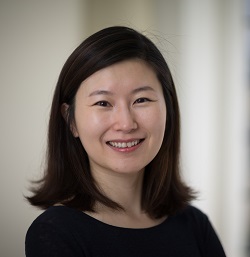
COMPUTATIONAL SOCIAL SCIENCE WORKSHOP
Abstract: Is innovation understood as an individual process or collective process as the whole greater than the sum of its parts? Innovation that brings about new knowledge is often described as individual search processes, exploiting and exploring a complex landscape of concepts, ideas, and items to find their novel connections. And yet, results of such search processes will have to be collectively structured, maintained by and shared with the society, the structure of which may both open up new adjacent possible or close down existing possibilities, thus imposing constraints on future individuals’ invention activities. On the one hand, this explains why innovation is such a contingent process with many idiosyncratic cases, stating unpredictable nature of innovation. On the other hand, understanding the underlying landscape of knowledge structure and its evolution itself provides a means to predict a future innovation. The structure and its dynamic as a collective outcome have more mass, and thus more inertia to change than individual behaviors. In this talk, I will provide a means to reconcile these two seemingly contradicting arguments, a co-evolution framework that describes how individual dynamics at a micro-scale are aggregated into a macro-structure which constraints future individual dynamics. Under the framework, a comprehensive model that we developed explains three defining structural properties of the knowledge landscape: ruggedness, modularity, and path-dependency. Our model demonstrates that it is indeed the individual innovative process that shapes the underlying knowledge landscape, but also their future actions are shaped by the very landscape they have been shaping. Such co-evolution processes between individuals and the collective structure seem to leave and pave the path-dependent trajectory of innovation, which is predictable. By constructing an innovation phase diagram of counter-factual spaces, and by analyzing two independent datasets – almost two centuries of the U.S. patents and four decades of scientific publications – we demonstrate that both science and technology evolve at the edge between the exploitation strategy and exploration strategy.
Hyejin Youn is an associate professor at Kellogg School of Management at Northwestern University, and an external faculty at Santa Fe Institute. Her PhD is in Physics at KAIST. She has received multiple NSF grants as Lead PI including the most recent one with $2.2M, entitled “Towards a unified theory of regulatory functions and networks across biological and social systems.”
This workshop is open to the Yale community and will be held in person. To receive regular announcements and attendance information, please subscribe to the seminar series at https://csap.yale.edu/computational-social-science-workshop.
This workshop is cosponsored by the Center for the Study of American Politics (CSAP) and the Yale School of Management (SOM) with support from the Initiative for Leadership and Organization at SOM.
